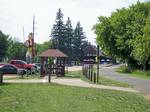
"Minnesota Gurls" Music Video
"Minnesota Gurls" Music Video
4:06
Become a fan on Facebook! www.facebook.com Somebody had to do it. Minnesota's response to Katy Perry's "California Gurls" by Dime and Peppimoo ft. Cookie and Twizzler. Appearances by Dizzay, Marf and Paperboy. Download thi...

♫ Www.Sparklogix.com : Affordable Minnesota Website Design and Minneapolis SEO Company ♫
♫ Www.Sparklogix.com : Affordable Minnesota Website Design and Minneapolis SEO Company ♫
1:05
Visit us : www.sparklogix.com and Call (612) 200-0332 Spark Logix Studios is a leading, professional website designer and developer in Minnesota. The primary focus is small business web design and development. The technology is in the creat...

Monster Jam - Pastrana 199 Freestyle In Minneapolis, MN 2006
Monster Jam - Pastrana 199 Freestyle In Minneapolis, MN 2006
2:37
Pastrana 199 Freestyle In Minneapolis, MN 2007 Monster Jam is the world's largest and most famous monster truck tour featuring the biggest names in monster trucks including Grave Digger®, Maximum Destruction®, Monster Mutt®,...

Empire State of Mind Parody - Minnesota State of Mind (Spoof / Parody)
Empire State of Mind Parody - Minnesota State of Mind (Spoof / Parody)
4:53
A TheAfternoonDLight spoof of Jay-Z and Alicia Keys song Empire State of Mind, Minnesota version... The glasses are suppose to look like the glasses Jay-Z wears and the hand symbol is the icon of roc-a-fella, Jay-Z's brand/label. Rate, ...

Violent Minnesota wedge tornado intercept!!!
Violent Minnesota wedge tornado intercept!!!
4:34
TornadoVideos.net Dominator intercepts violent wedge tornado southwest of Wadena, Minnesota, measuring incredible vertical winds with the radar, and launching parachute probes into the tornado with the cannon. We deployed in the strongest e...

"Robert Erickson" Speech to MN Tea Party Against Amnesty
"Robert Erickson" Speech to MN Tea Party Against Amnesty
3:28
Update: If you enjoyed "Robert's speech," join his Facebook fan page at www.facebook.com . On November 14 "Robert Erickson" was introduced to the Minnesota Tea Party Against Amnesty as a Minneapolis resident concerne...

12/11/2010 Minneapolis St Paul MN Metro area blizzard
12/11/2010 Minneapolis St Paul MN Metro area blizzard
7:55
The Minneapolis and Saint Paul metro region was hit hard with a record breaking amount of snow on Saturday. The cities just south and east of the metro area received 18 inches to 21.5 inches of snow. This video was shot in the southern Minn...

Senator Al Franken draws map of USA
Senator Al Franken draws map of USA
1:22
Senator Al Franken draws a map of all 50 states from memory during an appearance on Minnesota Public Radio's Midday at the Minnesota State Fair. Listen to the full interview with Sen. Franken here: minnesota.publicradio.org...

How Many Gays Must God Create Before We Accept That He Wants Them Around?
How Many Gays Must God Create Before We Accept That He Wants Them Around?
3:07
Representative Steve Simon (DFL Hopkins/St. Louis Park) says a proposed Minnesota constitutional amendment is largely about religion. He says if sexual orientation is innate as science is showing us, and not a lifestyle choice, then God cre...

Minnesota Wild Unstoppable
Minnesota Wild Unstoppable
3:02
WATCH IN HIGH QUALITY IF YOU CAN!!! First and foremost thanks to wukwinn www.youtube.com/wukwinn for all the footage. Without him sending me this stuff there would be no videos. Speaking of no videos. This video unfortunately will be my las...

National Geographic Bee 2011 - MN Finalist
National Geographic Bee 2011 - MN Finalist
2:59
William will be competing at the National Geographic Bee championship in Washington, DC Watch on the National Geographic Channel the week of June 13 at 6:30 pm ET. The finals will be broadcast later on public television stations. Check loca...

Occupy MN Moves into Foreclosed Home in North Minneapolis
Occupy MN Moves into Foreclosed Home in North Minneapolis
5:00
Monique White was on the verge of being evicted from her North Minneapolis home after US Bank moved to foreclose. Occupy MN activists camping out in front of Minneapolis City Hall for over a month faced a showdown with Hennepin County, whic...

minnesota walleyes ice fishing
minnesota walleyes ice fishing
6:21
a good morning of walleye fishing in north eastern Minnesota. We were fishing in 5' of water from the bottom of the ice using full minnows on a jigging spoon. this action was all caught on video from a hat cam from www.hatcams.com!!!...

Kensington Runestone story (KBJR-TV Duluth MN)
Kensington Runestone story (KBJR-TV Duluth MN)
6:01
Hoax or history? On November 8, 1898, a Swedish immigrant farmer, Olof Ohman, and his ten-year-old son say they found a Scandinavian runestone, dated 1362, wedged in the roots of a tree in rural Minnesota....











































